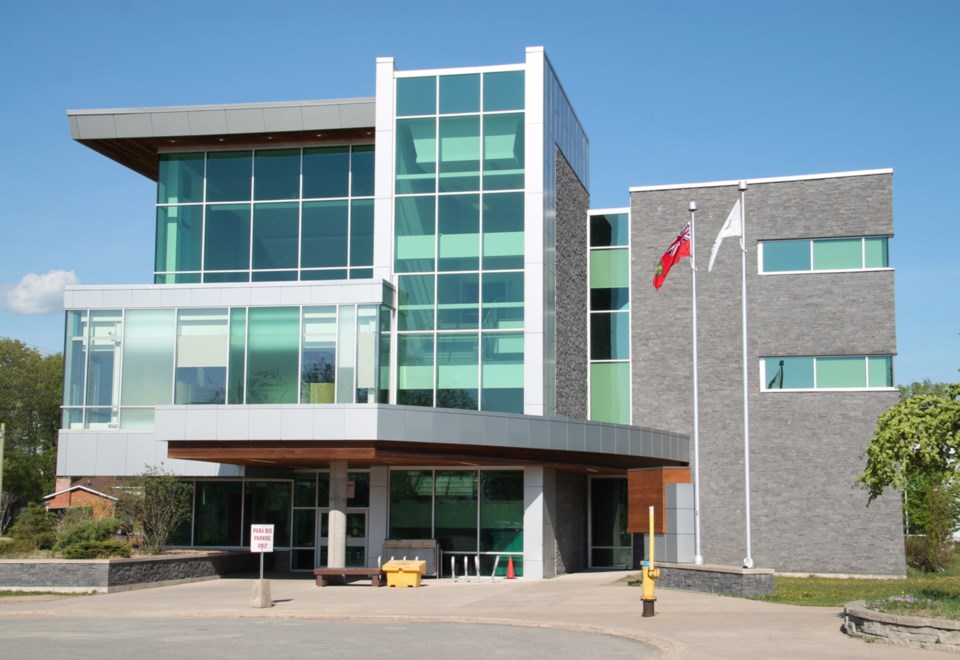An increasing number of new Sault College students are Saultites deciding to study locally, according to college enrolment numbers for the fall of 2024.
“Normally we see about 58 to 63 per cent of our new domestic students represented by the Algoma region," said Karli Campbell, Sault College registrar, at Thursday’s Sault College board of governors meeting. "This year it’s 71 per cent. Of that, over 80 per cent are coming from Sault Ste. Marie directly."
341 new domestic students are coming into the college directly from high school, another 446 non-directly.
‘Non-directly’ refers to people who have been out of high school for at least one year.
Domestic student applications are up by five per cent.
As far as northern Ontario colleges go, Sault College had the highest application to confirmation rate.
“That’s very positive. It was about four per cent higher than the northern college average,” Campbell said.
22 per cent of Sault College’s domestic enrolment includes self-identified Indigenous students.
The most popular programs among new Sault College students for the fall of 2024 are aviation, practical nursing, early childhood education, police foundations and Bachelor of Science in nursing.
The increase in domestic students comes with a decline in the number of international students at Sault College and TriOS College in Brampton which has a public-private partnership agreement with Sault College.
That decline comes after Immigration, Refugees and Citizenship Canada (IRCC) announced an international student cap in January and a stop on its issuing of post graduate work permits for graduates of institutions such as TriOS College.
Overall enrolment at Sault College and TriOS College decreased by 296 full-time students due to IRCC’s decision to close public-private partnerships.
Sault College’s main campus on Northern Avenue has 2,389 new and returning students this fall including 1,427 domestic students and 962 international students.
That includes 472 new international students compared to 562 new internationals last fall.
That’s a significant loss of revenue for Sault College said Richard Peters, the college’s vice president of strategic enrolment, partnerships and employment.
“The revenue from a domestic student is approximately $3,500 per year compared to revenue from an international student at around $17,000 per year so we’re looking at diversification strategies,” Peters told the board.
Officials could try to promote Sault College to local high school students before they choose to attend a university, Peters said.
“Right now there isn’t a single thing that could approach the magnitude of the potential impact that we’re looking at here for international revenue losses in the short term. It isn’t a quick fix, frankly,” Peters said, adding provincial funding for domestic students has not increased in several years.
The 962 international students at the Sault campus come from 36 countries in North and South America, the Caribbean, Europe, Asia and Africa.
The number of international students from India tops the list (538) followed by students from the Philippines (149), Nigeria (71), Nepal (35) and Brazil (30).
“We’re still able to pull that diversity although given the IRCC changes pulling students internationally to Canada has become very challenging so there is a market chill and we would expect to see more impact in the winter and spring intake than we have thus far in the fall,” Peters said.
College officials are concerned not only over restrictions on eligibility of post graduate work permits for international students but also IRCC’s elimination of work permits for spouses of international students.
They are concerned those restrictions don’t apply to international students attending universities.
“Right now the college nursing programs don’t qualify for post grad work permits, which is crazy. Even though we have a Bachelor of Science nursing program we don’t qualify but a university’s Bachelor of Science nursing program graduates would qualify for a post grad work permit. These are inconsistencies we’re still working through with our Ministry and across the sector all colleges are making lots of noise,” Peters said.
Don Mitchell, Sault College board of governors chair said the Ontario Chamber of Commerce and Canadian Chamber of Commerce are voicing support for community colleges in conversations with IRCC.
“The Chambers of Commerce are very good advocates for the business community and they’re doing their job by raising awareness with the federal government and the IRCC in particular around the workers that they need to ensure that their businesses continue to thrive and are stable. We welcome that support as a college,” Sault College president David Orazietti told SooToday after Thursday’s meeting.
“We just want to make sure our programs in these areas qualify (for post graduate work permits),” Orazietti said.
